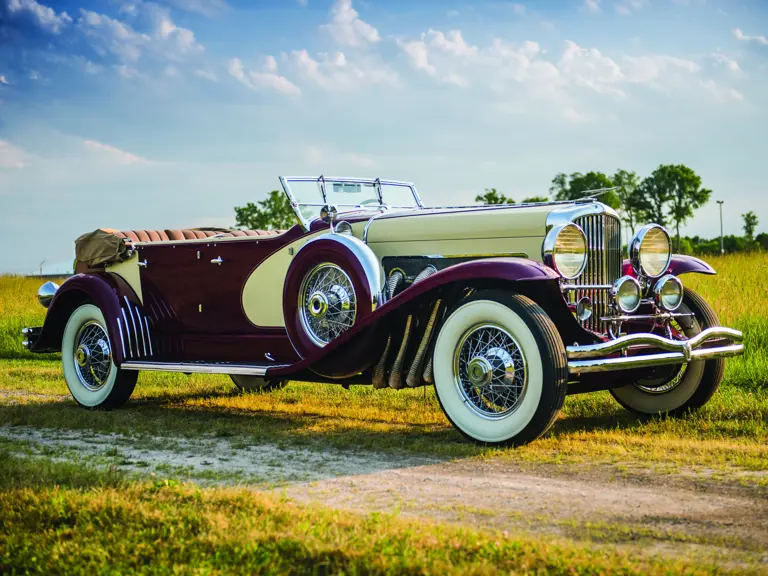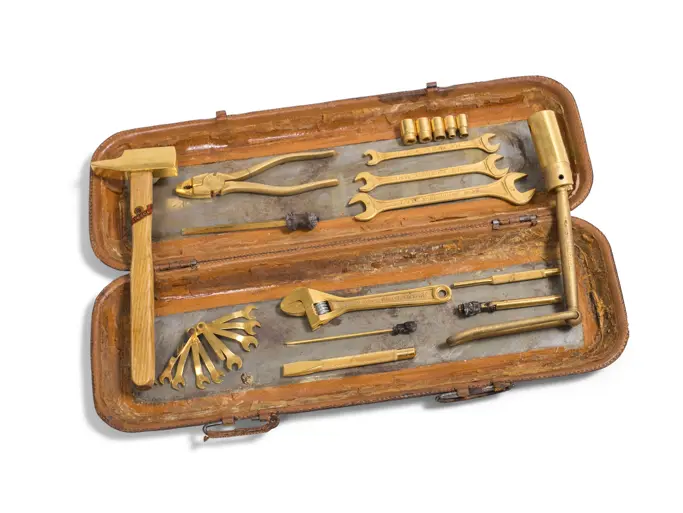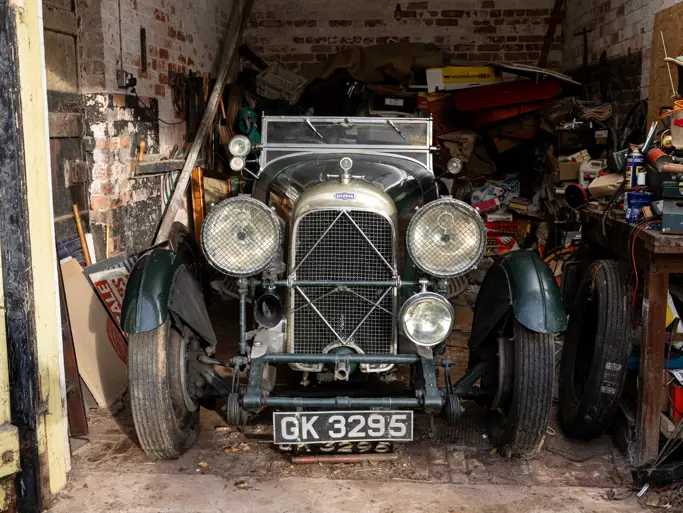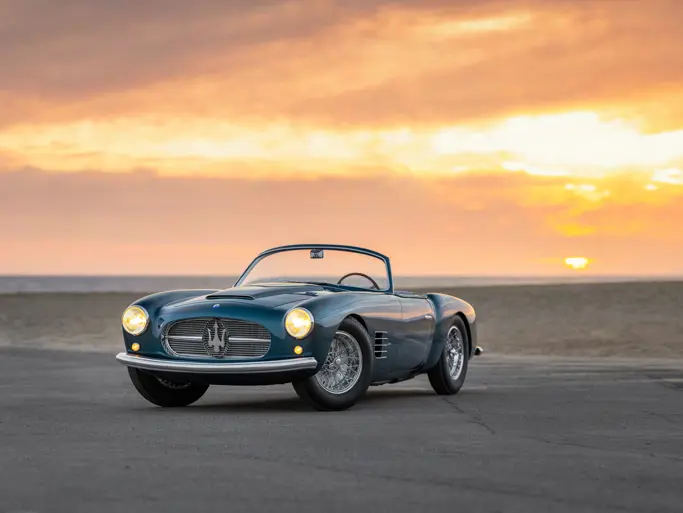
1933 Duesenberg Model SJ 'Sweep Panel' Sport Phaeton by LaGrande
{{lr.item.text}}
$2,300,000 USD | Sold
{{bidding.lot.reserveStatusFormatted}}
- The “Mexico City SJ,” a unique LaGrande Phaeton
- An original supercharged SJ; retains its original body, engine, and chassis
- Formerly of the Lyon Family Collection; known history since new
- Auburn Cord Duesenberg (ACD) Club Certified Category One (D-182)
- A highly sporting Duesenberg SJ of singular importance
Coachwork by LaGrande
Chassis no. 2540
Firewall no. 2540
Engine no. J-510
Body no. 1008
Eleven LaGrande “sweep panel” phaetons were produced for the long-wheelbase Duesenberg Model J chassis. Of these, just three were supercharged SJ models, and only one of these, no. J-510, offered here, boasted unique styling features, most prominently the lack of a full second cowl; instead, a folding windshield was fitted, that collapsed behind the front seat when not in use. The result, along with the potent supercharged engine and its signature side exhaust, produced a true four-passenger American sports car.
The car was delivered on 22 August 1933, to original owner Bernard E. “Ben” Smith, a floor trader with W.E. Hutton & Company in New York City. Smith was a pioneer “short seller” on Wall Street who made a fortune by continuously betting against the collapsing U.S. economy through 1932, including $10 million in 1930 alone. Quiet and secretive, he was reportedly mixed up in Duesenberg Motors owner E.L. Cord’s business deals of the time. The Duesenberg was maintained for its first decade at the Smith family home, Nestledown Farm, in Bedford Village, New York.
In the early 1940s, Smith and his son, Ben Jr., partnered with promoter Bruno Paglie to develop the Hipodromo de las Americas, a major horseracing facility near Mexico City. Ben Jr. and his new wife drove the Duesenberg to Mexico in 1946. Paglie bought the Hipodromo outright soon thereafter, and the SJ was apparently included as part of the sale. By this time, it was missing its original supercharger. The original supercharger had proved a bit unreliable and was removed by the Duesenberg factory branch in New York City for the Smiths. This was not an unusual modification in the 1940s.
Paglie owned the car for a few years before selling it in the early 1950s to Valentin G. Melgarejo, a used car dealer in Mexico City, who continued to drive the Duesenberg for a number of years while also using it as an advertising draw for his dealership. The Duesenberg was becoming desirable in collectible automobile circles, and various early enthusiasts were familiar with the “Mexico City SJ,” including pioneering Duesenberg historian Ray Wolff, who viewed it in 1957, 1960, and 1962. Several collectors made offers for the car, but Melgarejo always rejected them.
In 1968, Dr. William Wetta, one of the American enthusiasts familiar with the car, heard that it was for sale, and within a year had successfully purchased the automobile that had eluded many others. After being trailered back to Dr. Wetta’s home state of Alabama, the Duesenberg was repaired and tuned by local restorer Pierre Fontana.
In 1974 the phaeton was sold to another Southern enthusiast, who had it restored, including a full rebuild of the engine and paint in Damask Maroon and Texas Sand. The completed Duesenberg scored 99.75 points at the Allstate meet in Chicago in 1977, followed by 98.75 points and a National First Prize at the Indiana Grand Classic in Indianapolis. Soon thereafter the car was sold to Gene Storms of Newport Beach, California, who in 1979 had a precise, correct reproduction supercharger mounted, returning the engine to its correct SJ configuration.
Renowned Southern California enthusiast and collector, General William Lyon, purchased the car in April 1983, adding it to his significant stable of Duesenbergs. There the car would remain for the next 25 years, only occasionally shown but always well maintained, before joining its current owner’s notable private collection.
Still well presented and attractive down to the last detail, the “Mexico City SJ” ranks among the most significant and sporting Duesenbergs to be offered in recent years. A true American performance powerhouse, it is in the first rank of Full Classics.


 | Auburn, Indiana
| Auburn, Indiana


